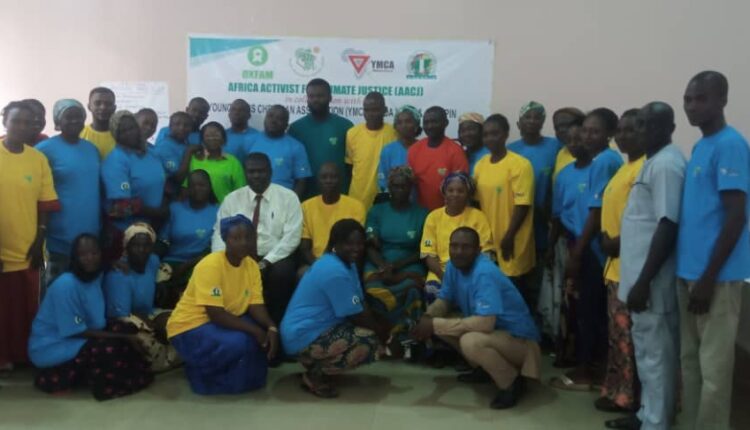Food Security: YMCA trains 65 on value chain, diversification in Nasarawa
By Linus Ogbu, Lafia
The Young Men’s Christian Association (YMCA) in collaboration with Association of Small Scale Agro Producer in Nigeria (ASSAPIN) has trained 65 women and youths on value chain and diversification in agriculture to mitigate climate change in Nasarawa State.
Mr Ango Adamu, Executive Secretary, YMCA Mada Hills, disclosed this on Thursday in Lafia during a One – Day sensitisation workshop on value chain / diversification in agriculture to mitigate climate change.
He explained that the workshop was organised in collaboration with Oxfam in Nigeria and supported by African Activists for Climate Justice (AACJ) Project.
Adamu said the sensitisation workshop aimed at educating participants particularly women and youths on how they could diversify their means of livelihood to mitigate impacts of climate change on them.
“Globally, climate change is ravaging the world including Nigeria, so things have changed, environments have changed and people must struggle to survive.
“So one of the survival methods is for us to see how we can improve livelihood of small scale farmers, women farmers and youths to know about climate change and locally led solutions they can adopt to combat climate change.
“And one of the locally led solutions is how they can diversify their means of livelihood either by planting trees, rearing livestocks and processing to become relevant to the society instead of over relying on rainfed agriculture,” he said.
According to the executive Secretary, 65 participants are drawn from five local government areas (LGAs) of the state; Kokona, Lafia, Akwanga, Nassarawa Eggon and Obi respectively.
He urged the participants to pay attention to learn to enable them carry out step down training for their group members in their various communities in the five LGAs.
Also speaking, Mr Kenneth Akpan, Project lead for AACJ for Oxfam, said that the training aimed at equipping women and youths with capacity and knowledge on how to diversify from their mainstay sources of income.
“Should climate change impacts affect their farming which we have seen over the years; declining yield of farm produce, flooding, farmers/herder crises.
“We want to build their capacity to go into other value chain like bee keeping, livestock rearing, horticulture, briquettes production that will give them something to fall back on while battling climate change,” he said.
Dr Vincent Aya, lead facilitator, said climate change has brought negative impacts like floods, desertification, low crop yield, food insecurity among others, noting that the only option was to diversify to mitigate its impacts.
Mr Godspower Ede and Jessica Emmanuel, participants, both promised to step down the training in their communities so as to mitigate impacts of climate change.


